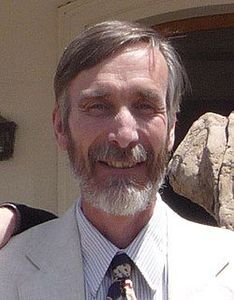
Robert L. Kelly
About
Robert Laurens Kelly is an American anthropologist who is a Professor at the University of Wyoming. As a professor, he has taught introductory Archaeology as well as upper-level courses focused in Hunter-Gathers, North American Archaeology, Lithic Analysis, and Human Behavioral Ecology. Kelly's interest in archaeology began when he was a sophomore in high school in 1973. His first experience in fieldwork was an excavation of Gatecliff Rockshelter, a prehistoric site in central Nevada. Since then, Kelly has been involved with archaeology and has dedicated the majority of his work to the ethnology, ethnography, and archaeology of foraging peoples, which include research on lithic technology, initial colonization of the New World, evolutionary ecology of hunter-gatherers, and archaeological method and theory. He has been involved in research projects throughout the United States and in Chile, where he studied the remains of the Inca as well as coastal shell middens, and Madagascar, where in order to learn about farmer-forager society, Kelly has participated in ethnoarchaeological research. A majority of his work has been carried out in the Great Basin, but after moving to Wyoming in 1997 he has shifted his research to the rockshelters in the southwest Wyoming and the Bighorn Mountains.





